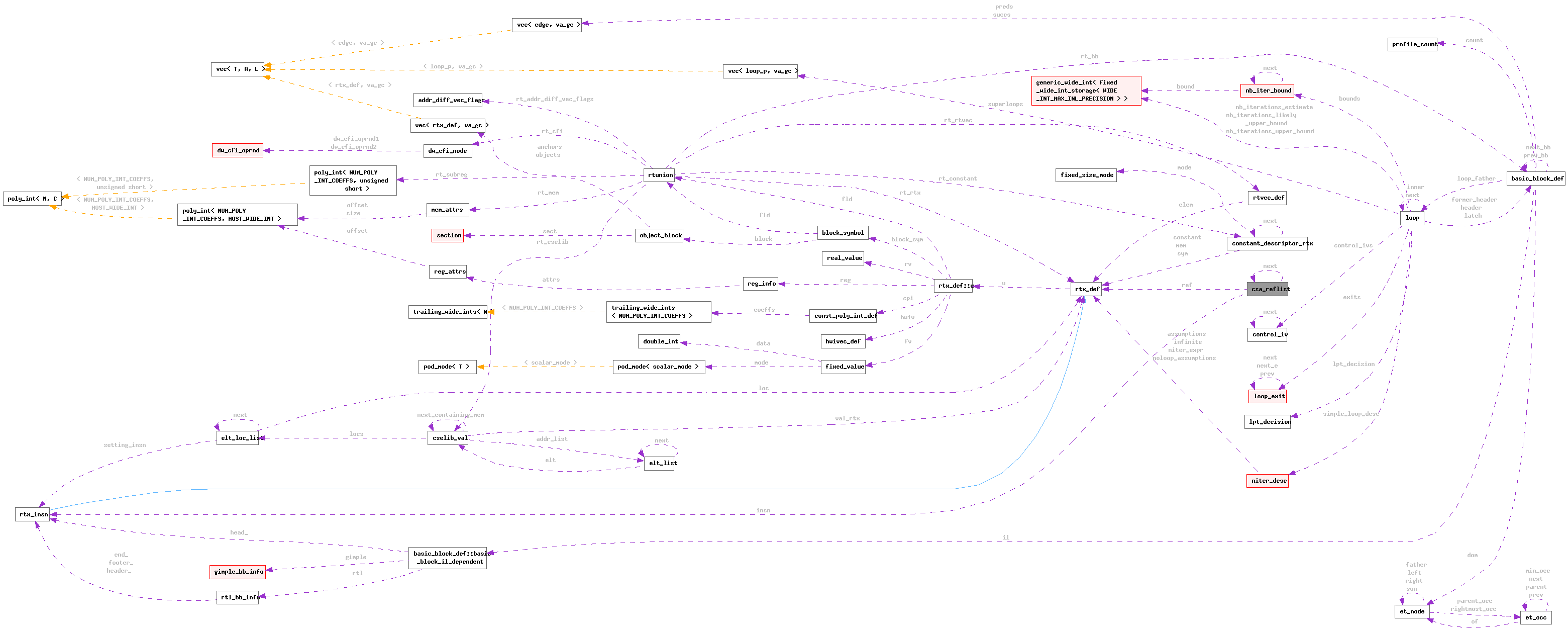csa_reflist Struct Reference
Collaboration diagram for csa_reflist:

Data Fields | |
| HOST_WIDE_INT | sp_offset |
| rtx_insn * | insn |
| rtx * | ref |
| struct csa_reflist * | next |
Detailed Description
Combine stack adjustments. Copyright (C) 1987-2026 Free Software Foundation, Inc. This file is part of GCC. GCC is free software; you can redistribute it and/or modify it under the terms of the GNU General Public License as published by the Free Software Foundation; either version 3, or (at your option) any later version. GCC is distributed in the hope that it will be useful, but WITHOUT ANY WARRANTY; without even the implied warranty of MERCHANTABILITY or FITNESS FOR A PARTICULAR PURPOSE. See the GNU General Public License for more details. You should have received a copy of the GNU General Public License along with GCC; see the file COPYING3. If not see <http://www.gnu.org/licenses/>.
Track stack adjustments and stack memory references. Attempt to reduce the number of stack adjustments by back-propagating across the memory references. This is intended primarily for use with targets that do not define ACCUMULATE_OUTGOING_ARGS. It is of significantly more value to targets that define PREFERRED_STACK_BOUNDARY more aligned than STACK_BOUNDARY (e.g. x86), or if not all registers can be pushed (e.g. x86 fp regs) which would ordinarily have to be implemented as a sub/mov pair due to restrictions in calls.cc. Propagation stops when any of the insns that need adjusting are (a) no longer valid because we've exceeded their range, (b) a non-trivial push instruction, or (c) a call instruction. Restriction B is based on the assumption that push instructions are smaller or faster. If a port really wants to remove all pushes, it should have defined ACCUMULATE_OUTGOING_ARGS. The one exception that is made is for an add immediately followed by a push.
This structure records two kinds of stack references between stack adjusting instructions: stack references in memory addresses for regular insns and all stack references for debug insns.
Field Documentation
◆ insn
| rtx_insn* csa_reflist::insn |
◆ next
| struct csa_reflist* csa_reflist::next |
◆ ref
| rtx* csa_reflist::ref |
Referenced by record_one_stack_ref(), and try_apply_stack_adjustment().
◆ sp_offset
| HOST_WIDE_INT csa_reflist::sp_offset |
Referenced by record_one_stack_ref(), and try_apply_stack_adjustment().
The documentation for this struct was generated from the following file: